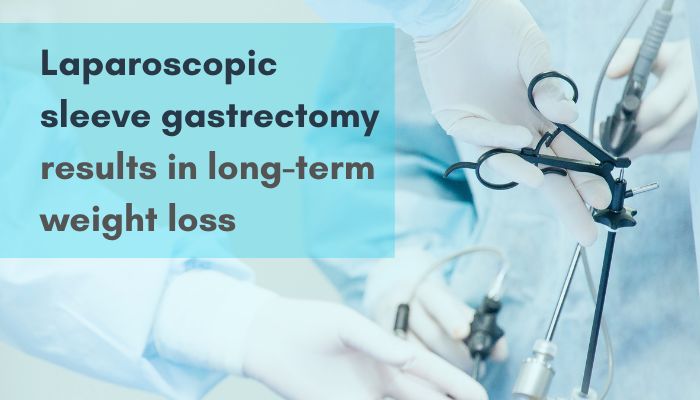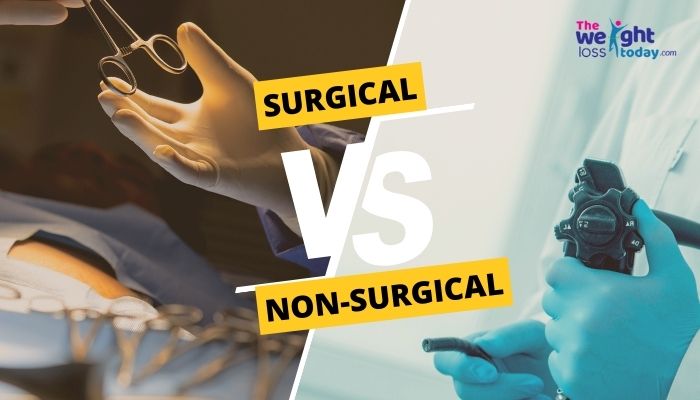Obesity is a complex condition characterized by an accumulation of...

Sleep apnea and how it is associated with Obesity
Sleep apnea refers to a condition in which
58,936 total views, 59 views today
Home » Endoscopic Sleeve Gastroplasty
Obesity is emerging as a global epidemic. In 2016, more than 1.9 billion adults were overweight, and about 650 million of these were diagnosed with obesity.
Many people with obesity can lose weight with diet and exercise. While some people, especially with conditions such as high blood pressure, diabetes or heart disease, find it difficult to lose weight with diet and exercise only. For such individuals, weight loss procedures are recommended. One such procedure is endoscopic sleeve gastroplasty.
Endoscopic sleeve gastroplasty (ESG) is a new, minimally invasive weight loss procedure. This method reduces the size of the stomach by 80% using an endoscopic suturing device. This is accomplished by placing a series of stitches in the stomach wall. By reducing the volume of the stomach, the amount of food held by the stomach at one time is reduced, which reduces the intake of calories, hence resulting in weight loss.
Endoscopic sleeve gastroplasty results in a significant weight loss. As the procedure is minimally invasive, it reduces the risk of operative complications and helps one to return to daily activities soon.
Along with weight loss, ESG can potentially reduce the risk of weight-related conditions, such as high blood pressure, heart diseases, stroke, type 2 diabetes, non-alcoholic fatty liver disease (NAFLD), sleep apnea, and osteoarthritis (OA).
ESG, like other weight loss procedures, requires a commitment to a healthy lifestyle. One must make permanent changes to their diet and exercise regularly if they are planning to undergo this procedure. This commitment ensures the long-term success of endoscopic sleeve gastroplasty.
Endoscopic sleeve gastroplasty is recommended for individuals who are significantly overweight and were not benefitted from improving diet and exercise habits.
The following are the criteria to undergo ESG:
One cannot undergo endoscopic sleeve gastroplasty, if they have:
Once qualified for ESG, the individual will receive a set of instructions to help prepare for the procedure. The individual may have to undergo various tests and examinations before the surgery.
Dietary counselling may be scheduled before the procedure to help the individual understand what to expect after the procedure. Post-procedure rigorous dietary changes have to be made and the individual must understand this and should be willing to make these changes.
An exercise regime may be provided before the procedure, which will be continued after the procedure. Certain medications may be stopped before the procedure. If the individual is on anticoagulants, then alterations in the course of medication will be done before the procedure.
An anaesthesiologist will discuss the type of anaesthesia the individual is comfortable with, and to brief about the effects of anaesthesia. Usually, the procedure is performed under general anesthesia.
One should also arrange for help at home for the recovery period.After the procedure, the individual will be moved to a recovery room, where the medical staff will monitor for any complications.
The individual will not be allowed to eat anything for about eight hours. After eight hours, the individual will be put on a liquid diet, which should be continued for at least two weeks.
After two weeks, the individual will move on to semi-solid foods and then to a normal, healthy diet.
Some individuals may have pain and nausea for several days after the procedure, which is usually managed by pain and nausea medications. With medications, individuals feel better in a few days. For recovery, the individuals may receive a list of dos and don’ts from the doctor. Usually, the individuals are asked not to lift more than 20 pounds (approximately 9kgs) for the initial weeks. They may be recommended not to perform extreme physical activity for the first six weeks, as it may make them fatigued. They can resume normal activities and light exercise one day after the procedure.
Several medical check-ups are also scheduled after the procedure. Appointment with a nutritionist and psychologist may also be scheduled.The results of endoscopic sleeve gastroplasty vary among the individuals. The amount of weight lost depends on the changes made in the lifestyle. About 15% to 20% of total body weight can be lost over 12 to 24 months after undergoing the procedure.
Some individuals do not lose enough weight or regain lost weight, even if the procedure was effectively performed. This occurs when the individual does not follow the recommended lifestyle changes. Regaining weight can be avoided if the individual makes permanent changes in the diet and exercises regularly.
Sleep apnea refers to a condition in which
58,936 total views, 59 views today

Since the beginning of 20th century, the overall
58,912 total views, 58 views today

New year is the time for new beginnings.
59,612 total views, 58 views today

Weight loss can be tricky business, as it
59,483 total views, 58 views today

According to a recent study, weight loss through
60,382 total views, 58 views today

According to a recent study, preoperative very low
60,383 total views, 58 views today

A recent study conducted on GERD (Gastroesophageal Reflux
60,387 total views, 58 views today

A recent study done to examine the long-term
59,269 total views, 58 views today

Overweight and obesity is a major health concern
29,554 total views, 42 views today

A recent study published in the Journal of
28,744 total views, 42 views today

The findings from a recent study, published in
28,985 total views, 42 views today

The findings of a recent study, published in
29,385 total views, 42 views today

Obesity is a complex condition characterized by an accumulation of...
Obesity is a lifestyle disorder, characterised by an excess amount...
For obese patients, bariatric surgeries are like a dream come...
Bariatric surgeries are recommended when the obese person fails to...
Obesity is emerging as a global epidemic. In 2016, more...
Obesity is defined as having a body mass index (BMI)...